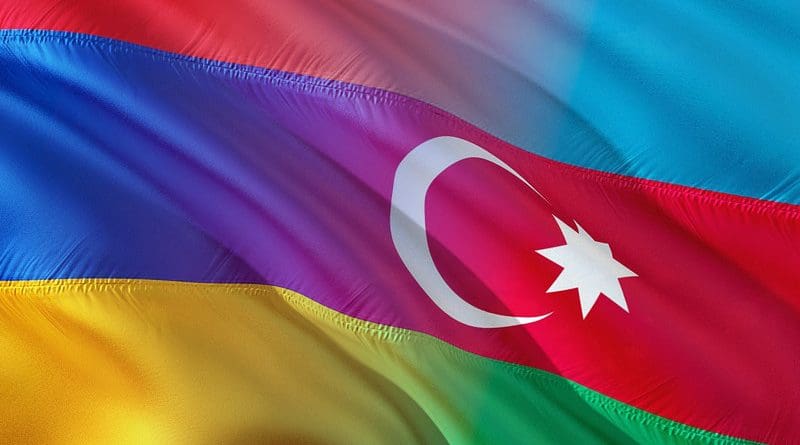Azerbaijan, Armenia Hold Border Meeting Amid Stagnant Peace Talks
By Eurasianet
By Heydar Isayev
(Eurasianet) — Armenia and Azerbaijan continue to discuss the delimitation of their mutual borders as part of wider talks on a peace treaty that show little sign of progress.
On November 30, the state commissions of Armenia and Azerbaijan on border delimitation met for the fifth time at the Ijevan (Armenia) – Gazakh (Azerbaijan) section of their border. The commissions are chaired by deputy prime ministers Mher Grigoryan from Armenia and Shahin Mustafayev from Azerbaijan.
After the meeting, the foreign ministries of the two countries released nearly identical statements.
“The sides continued the discussion of border delimitation issues and touched upon a number of organizational and procedural issues,” the Armenian ministry reported.
“The parties have reached preliminary agreement on the text of the Order for organization and conduct of sittings and joint working meetings” between the commissions, it further said, adding that they have also arranged to “commence the elaborations to agree upon the draft Regulation on joint activity” of the commissions and agreed to “intensify the conduct of the meetings.”
That indicates the meeting was at least more productive than the last one in July, after which the foreign ministries only reported that their discussions would continue.
However the meeting did not engender hope among observers for progress toward any actual demarcation work and toward the ultimate aim of signing a peace agreement.
“Sadly, short meeting and we can understand why. Five meetings since the border commissions first met in May 2022 and they still haven’t agreed on how to regulate and hold them,” British journalist Onnik Krikorian, who has long covered the peace process, wrote on X. “Yeah, ‘intensifying’ the process might be a good idea.”
The peace process between Armenia and Azerbaijan has been at a crossroads for a while, especially since Baku’s full takeover in September of Nagorno-Karabakh, the territory that had been at the heart of the dispute between the two countries for more than 30 years.
After that, it looked like there were no more barriers to reaching a peace treaty between the two countries, with the de facto Armenian government in Nagorno-Karabakh initiating its own dissolution and Armenia accepting the territory as part of Azerbaijan.
Nowadays the sides have been disagreeing over who should mediate their disagreements.
While Armenia has been seeking to pivot away from Russia and toward the West, Azerbaijan has been rejecting Western countries’ involvement in the peace process. Since September, Azerbaijan has been airing grievances against France and the U.S., both of which had been mediators in the conflict ever since the 1990s, when the First Karabakh War was being fought. Azerbaijan resents Paris and Washington’s objections to the September offensive and the subsequent Armenian exodus from Nagorno-Karabakh.
Azerbaijan has expressed preference for resolving the conflict within the region – either bilaterally or through the mediation of countries like Georgia, Turkey, and Russia.
Meanwhile, an OSCE meeting of foreign ministers was convened on the same day as the border talks. The top Azerbaijani and Armenian diplomats were both there but did not meet.
In his speech to the Council, Foreign Minister Ararat Mirzoyan reiterated Armenia’s assertion that, after Azerbaijan’s “ethnic cleansing” of Nagorno-Karabakh, Baku is eying an attack on Armenia.
“Even after having this done [seizing all of Karabakh] the claims of the Azerbaijani side were not halted. Now the entire sovereign territory of the Republic of Armenia has become the target of our neighbor. This, coupled with continuous hatred, military rhetoric, use of force and threats of use of force, refusal to come to the meetings organized by various international actors, including the U.S. and the EU, illustrates that this country is not sincerely interested in peace and stability in our region.”
For his part, Azerbaijan’s Jeyhun Bayramov said that all the Karabakh Armenians left of their own volition and were free to stay in their homes. He accused Yerevan of needlessly dragging out the peace process and railed against “biased and one-sided actions by certain third parties [that] seriously affect the process.”
“Despite all the challenges, Azerbaijan remains committed to the soonest resumption of direct negotiations to finalize the peace agreement. We publicly offered Armenia to meet on the mutual state border, or in an impartial and neutral third country.”
Heydar Isayev is a journalist from Baku.

